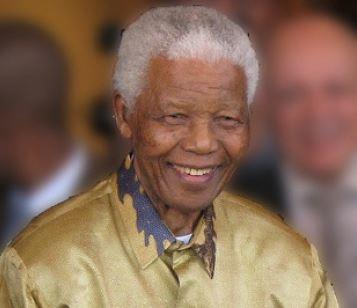
Section Branding
Header Content
Ambassador Andrew Young Remembers His Friend Nelson Mandela
Primary Content

Former South African President Nelson Mandela died Thursday at the age of 95. He had been hospitalized for the treatment of a lung infection in April, and was hospitalized again in June.
Atlanta civil rights leader Andrew Young, who is also a former Ambassador to the United Nations, knew Mandela personally.
Young says Mandela's long incarceration on Robben Island from 1962 to 1990 enabled him to grow the anti-apartheid movement:
“The people who were in jail with him, the young people especially, came to call Robben Island ‘Nelson Mandela University’,” said Young during an interview with GPB. “In the 27 years he was in jail, he touched literally thousands of young men.”
Ambassador Young says Mandela believed that you could only defeat apartheid through love and understanding.
“He was extremely well-educated. He was born and raised in the Methodist Church, by Methodist school, by Methodist missionaries. And was a devote Christian who took his imprisonment very much like the Apostle Paul took his, as part of the trials and tribulations of leadership.”
U.S. Senator Johnny Isakson, R-Ga., released a statement on Thursday regarding the passing of Mandela, saying his thoughts and prayers are with the former president's family and the people of South Africa.
"The world lost a selfless champion of freedom, democracy and equality today. Nelson Mandela’s courage in the face of terrible injustice helped dismantle apartheid, and his determined leadership guided South Africa through a process of reconciliation that at one time seemed impossible," said Isakson. "Mandela’s legacy will be one of dignity, forgiveness and a profound dedication to the principles that all free people hold dear."
Nelson Mandela spent 27 years in prison for his political agitation for racial equality. He became South Africa’s first black president in 1994 when the apartheid system ended.
Contributors: Shauna Stuart
